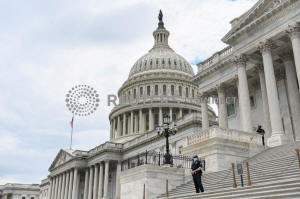U.S. House panel backs defense bill, Confederate battle looms
 Send a link to a friend
Send a link to a friend
 [July 03, 2020]
WASHINGTON (Reuters) - A U.S. House
of Representatives committee unanimously backed a $741 billion defense
bill late on Wednesday, setting the stage for a battle with President
Donald Trump over naming military bases for Confederate generals and
moving troops from Germany. [July 03, 2020]
WASHINGTON (Reuters) - A U.S. House
of Representatives committee unanimously backed a $741 billion defense
bill late on Wednesday, setting the stage for a battle with President
Donald Trump over naming military bases for Confederate generals and
moving troops from Germany.
The House Armed Services Committee approved its version of the annual
National Defense Authorization Act, or NDAA, by 56-0 shortly before
midnight.
The bill sets policy for the Department of Defense on everything from
how many ships are built to benefits for troops to how the country
should counter threats from Russia and China.
Because it is one of the few bills Congress passes every year, lawmakers
use the NDAA as a vehicle for a wide range of policy provisions.

The House version of the 2021 NDAA includes an amendment to remove the
names of Confederate generals, who fought U.S. forces during the Civil
War, from military bases within a year.
The Senate's version of the NDAA includes a provision to change the
names within three years.
Widespread protests over the treatment of Black Americans and bipartisan
support in Congress make it likely that some version of the provision
will remain in the NDAA as it moves through Congress.
[to top of second column]
|

Police officers wearing face masks guard the U.S. Capitol Building
in Washington, U.S., May 14, 2020. REUTERS/Erin Scott

After the House and Senate pass their versions, they will negotiate
a compromise version of the bill, which both chambers must pass
before it can be sent to Trump.
Trump has promised a veto, breaking with several of his fellow
Republicans in Congress who favor changing the names. The House
provision was introduced by Democratic Representative Anthony Brown
and Republican Don Bacon.
The House NDAA also would make it more difficult for Trump to follow
through on plans to reduce the number of U.S. troops stationed in
Germany by barring their removal unless the Pentagon certifies doing
so will not affect national security.
(Reporting by Patricia Zengerle)
[© 2020 Thomson Reuters. All rights
reserved.] Copyright 2020 Reuters. All rights reserved. This material may not be published,
broadcast, rewritten or redistributed.
Thompson Reuters is solely responsible for this content.
 |